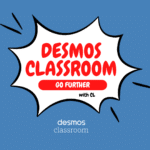A Tale of 3rd Grade Homework
When my son was in 3rd grade he came up to me to ask for help with his homework. He did not understand the commutative and associative property. Well, I am a math teacher so I can explain it but I wonder how many of the other parents in the class could. How many felt dumb that they did not understand 3rd grade math?
Fighting
While I CAN help my son with the commutative and associative property that does not make it a pleasant experience. Helping my kids with assignments usually involves them transferring their frustration over not understanding to me. They will cry, yell, roll on the floor, tell me I don’t get it, I’m not doing it right, etc… End result, my pleasant family time is disrupted for a fight with my kids. Everyone is tense.
“Homework is often a source of friction between home and school.” (Cooper, Robinson, & Patall, 2006)
“Students who do not or cannot do the assigned homework due to several reasons do not want to go to school on the day of that class. ” (Sahin, Arseevn, & Kilic, 2016)
“Then there’s the damage to personal relationships. In thousands of homes across the country, families battle over homework nightly. Parents nag and cajole. Overtired children protest and cry. Instead of connecting and supporting each other at the end of the day, too many families find themselves locked in the “did you do your homework?” cycle.” (Shumaker, 2016)
“Greater stress: 56 percent of the students considered homework a primary source of stress, according to the survey data. Forty-three percent viewed tests as a primary stressor, while 33 percent put the pressure to get good grades in that category. Less than 1 percent of the students said homework was not a stressor.” (Parker, 2016)
Cooper, H., Robinson, J. C., & Patall, E. A. (2006). Does homework improve academic achievement? A synthesis of research, 1987–2003. Review of educational research, 76(1), 1-62.
Miller, C. C. (2015, November 4). Stressed, Tired, Rushed: A Portrait of the Modern Family. Retrieved from http://mobile.nytimes.com/2015/11/05/upshot/stressed-tired-rushed-a-portrait-of-the-modern-family.html?partner=rss&emc=rss&_r=1&referer=http://m.facebook.com
Parker, C. B. (2016, April 15). Stanford research shows pitfalls of homework. Retrieved from http://news.stanford.edu/2014/03/10/too-much-homework-031014/
Sahin, S., Arseven, Z., & Kiliç, A. (2016). Causes of Student Absenteeism and School Dropouts. International Journal of Instruction, 9(1), 195-210.
Shumaker, H. (2016, March 5). Homework is wrecking our kids: The research is clear, let’s ban elementary homework. Retrieved from http://www.salon.com/2016/03/05/homework_is_wrecking_our_kids_the_research_is_clear_lets_ban_elementary_homework/










2 thoughts on “A Tale of 3rd Grade Homework”
How do you unsplit the side -by side windows?
Click on maximize to full screen.